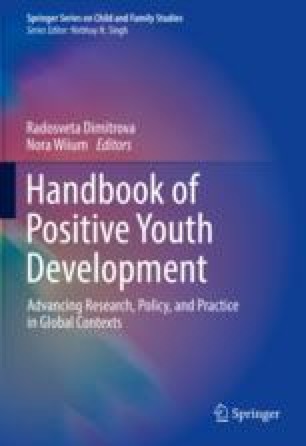Another Way Out: A Positive Youth Development Approach to the Study of Violent Radicalization in Québec, Canada
Violent radicalization is the result of a multidimensional process determined by a complex interplay among cultural, social and individual variables. However, empirical evidence on the risk and protective factors involved in the process of violent radicalization is still scarce. Even less is known on early determinants in terms of primary prevention. In the present chapter, we argue the importance of a Positive Youth Development (PYD) approach to the study of violent radicalization, aimed at fostering youth strengths across multiple levels of functioning. In support of our argument, we present findings from a broad quantitative project on the determinants of sympathy for violent radicalization among youth in Québec (Canada). The findings suggest that supporting connection (e.g., social support, plural group identities and religiosity) and confidence (e.g., positive future orientation) represents an effective way of providing youth with valid alternatives to violent radicalization.

